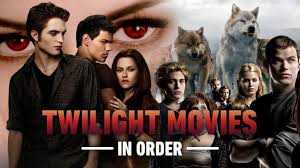
The Undying Spark: Revisiting the Love Triangle that Defined a Fandom
In the annals of young adult fiction, few narratives have ignited a firestorm of passion, debate, and fervent loyalty quite like the love triangle at the heart of Stephenie Meyer’s Twilight saga. Bella Swan, Edward Cullen, and Jacob Black were not merely characters; they were archetypes, avatars in a generational debate that transcended the page and silver screen, becoming a cultural touchstone. Revisiting this iconic trinity today is to step back into a particular moment in time, to understand how a seemingly simple romantic dilemma carved an indelible mark on an entire fandom, shaping friendships, sparking online wars, and ultimately defining an era of pop culture.
The immediacy of the “Team Edward vs. Team Jacob” divide was seismic. It wasn’t enough to simply prefer one suitor; fans were compelled to pledge allegiance, to declare a side with the conviction of a political affiliation. T-shirts, forum avatars, and even real-world friendships bore the weight of this choice. Edward, with his crystalline skin, ancient gaze, and brooding intensity, represented the intoxicating pull of the forbidden and the eternal. He was the Byronic hero personified, a creature of dangerous beauty who wrestled with his predatory nature for the sake of love. His allure lay in the high stakes: a love that literally threatened Bella’s life, a devotion so absolute it bordered on possessive, and the promise of a dark, sparkling immortality. To choose Edward was to embrace the fantasy, the transformative power of a love that defied human limitations, a romance steeped in danger and myth.
Conversely, Jacob Black, the warm, sun-drenched counterpoint to Edward’s cold brilliance, offered a grounded, fiercely loyal, and undeniably human alternative. He was the best friend who loved Bella unconditionally, a constant presence in her tumultuous life, offering comfort, laughter, and a path back to a semblance of normalcy. Jacob’s appeal was in his raw, protective strength, his unwavering devotion, and the comforting familiarity of a love that felt attainable. He was the safe harbor, the personification of a life lived in sunlight, free from the eternal gloom of the supernatural world. Choosing Jacob was to opt for the known, the comfortable, the love that promised a future of warmth and shared humanity, even if that humanity came with its own set of supernatural, albeit less gothic, complications.
At the epicenter of this maelstrom was Bella Swan, the seemingly ordinary girl thrust into an extraordinary world. Her relatable awkwardness, her initial sense of being an outsider, made her the perfect conduit for the audience’s own romantic dilemmas. She wasn’t just a prize to be won; she was an individual grappling with existential choices. Her heart, pulled in two vastly different directions, mirrored the internal struggles of countless readers and viewers. Did she chase the thrilling, dangerous, all-consuming passion of Edward, even if it meant sacrificing her humanity? Or did she opt for the steadfast, comforting, deeply human love of Jacob, a love that promised stability but perhaps less fireworks? Bella’s journey was less about choosing a boyfriend and more about choosing a destiny, an identity, and a fundamental way of experiencing the world.
Revisiting this triangle today, with the benefit of hindsight and a more critical eye, reveals its enduring power alongside its sometimes problematic undercurrents. Edward’s controlling tendencies and Jacob’s persistent pursuit, even in the face of clear rejection, have been subjects of modern scrutiny. Yet, even as we acknowledge these complexities, the raw emotional core of the dilemma remains compelling. The Twilight love triangle tapped into universal human desires: the yearning to be chosen, the fear of missing out, the allure of both exhilarating passion and comforting companionship. It presented a binary choice that, while perhaps overly simplistic, resonated deeply because it mirrored the very real push and pull of different priorities and desires within a single heart.
Ultimately, the Bella, Edward, and Jacob love triangle did not merely entertain; it defined a fandom by forging a collective experience. It wasn’t just a story read in isolation; it was a conversation, a debate, a shared identity that spilled out from the pages and screens into the fabric of everyday life. It taught a generation about the passionate intensity of fandom, the joy of communal obsession, and the profound way fictional relationships can reflect and amplify our own deepest longings and dilemmas. The spark it ignited may have dimmed for some, but its legacy as a cultural phenomenon, a crucible where millions debated the very nature of love, remains an undying testament to its powerful, illustrative sway.
